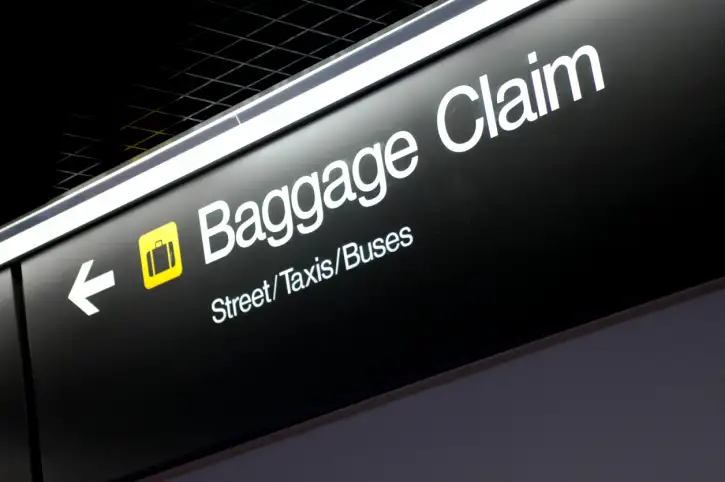
Want to receive stories like this every day? Subscribe to our free Deal Alert newsletter.
As of this week, some of the Department of Transportation’s newest passenger protections have gone into effect. The main features:
- Maximum compensation limits for being bumped increase to $650 for a short delay and $1,300 for a long delay.
- Penalties for extended tarmac delays now apply to international flights as well as domestic.
- Airlines must refund checked baggage fees if they lose your bags.
- Airlines must issue applicable ticket refunds promptly.
- The remaining new DOT requirements are delayed until next January.
Although these are all positive steps and welcome, they’re far from adequate to correct airline consumer abuses. Basically, air travelers still have a long way to go to achieve the results that tort law commonly requires for failure to fulfill contracts: Make the consumer whole.
Let’s take a close look at the new bumping compensation. Although many writers have focused on the large dollar increase, the effect is a lot less than it seems:
- The dollar ceiling is a maximum, not a standard. Most of you will get the value of the ticket for the flight in question—just the one flight, not the entire ticket—which is apt to be less than the maximum for most cheap economy tickets. On multi-step and round-trip tickets, the value of the bumped segment is based on prorating.
- Sure you get to keep and reuse your original ticket, but for just the flight you couldn’t board. If your ticket covers a multi-stop itinerary or round-trip, you may have trouble actually using that single segment at a later time. Airlines should be required to refund it without penalty if you request.
- Moreover, tying the bumping penalty to your ticket price doesn’t make sense. What you paid has no bearing on the amount of your inconvenience. You should get the specified dollar amount regardless of what your ticket cost.
- As always, bumping penalties apply solely when you’re bumped due to overbooking. As I’ve noted before, the penalty should apply any time an airline denies boarding, not just for overbooking.
And as to the baggage fee refund, you get it only when an airline actually “loses” your bag. If it’s just delayed, DOT says you get bubkes. A few airlines voluntarily refund fees when baggage is late, but that should be a requirement. And for the tarmac delay penalty, so far I haven’t seen the DOT’s actually levying any large fines. The test will come this winter.
Delayed provisions focus mainly on display of fares and ancillary fees and now much detail is included on e-tickets. For ordinary consumers, the most important requirement is for all-up fare advertising, including all fees and taxes—a step long overdue. The industry isn’t fighting these more detailed disclosure requirements; the airlines, travel agencies, and computer system operators just needed more time to rework their systems. And even then, these requirements are aimed mainly at business travelers rather than leisure travelers; I see no further major improvements. Overall, I vote for “ho, hum.”
Almost unnoticed is another consumer protection, from another direction, that could potentially have a big impact. The Ninth U.S. Circuit Court issued a ruling that consumers can sue airlines in state and local courts for contract violations. Previously, lower courts held that the Deregulation Act of 1978 limited consumer lawsuits against airlines only to federal court. Not so, said the Circuit Court on appeal; the 1978 Act applies only to matters dealing with prices, routes, and service and it does not pre-empt local authority over contract issues.
Airlines will almost surely appeal the decision up to the Supreme Court. The Ninth Court is generally regarded as among the country’s most liberal, and a conservative Supreme Court might well side with airlines against consumers.
But if it holds, this decision could be big. You should have a much easier time taking airlines into more accessible and consumer-friendly local courts rather than federal court for failure to deliver what they promise—and for other similar legal issues.
{{{SmarterBuddy|align=left}}}
We hand-pick everything we recommend and select items through testing and reviews. Some products are sent to us free of charge with no incentive to offer a favorable review. We offer our unbiased opinions and do not accept compensation to review products. All items are in stock and prices are accurate at the time of publication. If you buy something through our links, we may earn a commission.
Related
Top Fares From
Today's Top Travel Deals
Brought to you by ShermansTravel
Porto to Lisbon: 7-Nt, Small-Group Portugal...
Indus Travels
 vacation
$1899+
vacation
$1899+
Luxe, 12-Night Spain, France, Monaco &...
Regent Seven Seas Cruises
 cruise
$12599+
cruise
$12599+
Ohio: Daily Car Rentals from Cincinnati
85OFF.com
 Car Rental
$19+
Car Rental
$19+



